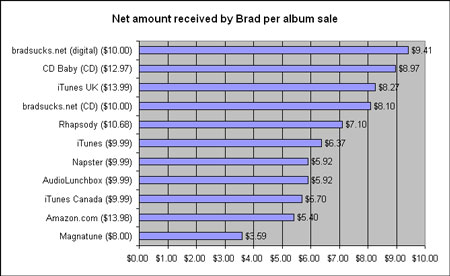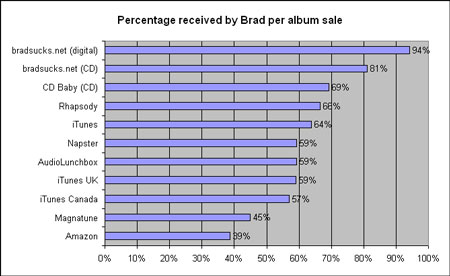I love this Louis C.K. interview where he talks about licensing The Who's "Who Are You" for his TV show:
So we went to MCA or whoever has it and they said, “Well, we have the master rights and Pete Townshend’s publishing company has the publishing, and it’s a favored-nations deal.” In other words, whatever we negotiated with them, we would then also have to pay Pete and the publishing. So their first offer was, I think, $150,000. [Laughs.] Because it was the whole song! So we’d have to pay $300,000 total. That’s a whole episode for us. That’s the whole budget for the entire episode. But we didn’t give up. That’s the way it worked. And either the company or someone else told Blair, “The other way to work it is to go to Pete Townshend first.” Because it’s the same in the other direction: Whatever deal he makes, they have to honor his deal, too. They have to take whatever offer he gives. They have to match it. But try to go get Pete Townshend on the phone. That’s even harder. So it just took a lot of fuckin’ time. And occasionally, we’d be on the set shooting “Blueberries” or “Moving” or whatever it is, and I say to Blair, “How’s it going with The Who?” and she’d either say, “Dead” or, “I just talked to a guy today” or, “A guy I talked to today is looking into something.” And it went on and on. And finally, she said, “Well, Pete Townshend wants to know exactly how it’s being used, and he wants to see the show. He wants to see some episodes.” So I wrote him a synopsis of how it would be. I described it very carefully, and we sent him the DVD of five episodes from last season. And then, I don’t know, three or four months later, it felt like, he came back to us and said, “Can you send me 7,500 bucks?” [Laughs.] Yeah! And so the whole thing cost $15,000, which is fucking nothing!
I agree to a lot of licensing (and have always been laid back about it) so that's fun to read.


